To accompany your Come Follow Me study for May 12-18
In addition to reading sections 46-48, you will want to:
- Read Chapter 18: Doctrine and Covenants 46–49 (churchofjesuschrist.org)
- Read Religious Enthusiasm among Early Ohio Converts (churchofjesuschrist.org)
- Read Joseph Smith’s Revelations, Doctrine and Covenants 46 (churchofjesuschrist.org)
- Read Joseph Smith’s Revelations, Doctrine and Covenants 47 (churchofjesuschrist.org)
- Read Joseph Smith’s Revelations, Doctrine and Covenants 48 (churchofjesuschrist.org)
- Read The Book of John Whitmer (churchofjesuschrist.org)
- Watch the following videos:
- Read Gospel Topics, “Spiritual Gifts,” at https://www.churchofjesuschrist.org/study/manual/gospel-topics/spiritual-gifts?lang=eng
If you would like a Kahoot game related to this material that you could use with your family or your class, click here: https://create.kahoot.it/share/doctrine-and-covenants-46-48/da6b2de3-7896-4ba7-9d55-8469bbead000. To use it with a group, after clicking on this link, you will need to log into Kahoot, creating a free account if you have not done so previously, then click on the blue “Host Live” button or the gray “Assign” button, depending on how you wish to use the Kahoot. Some of the Kahoot questions may presuppose that the player has read through the suggested answers to the following Points to Ponder and at least has browsed the Institute student manual as well.
Points to Ponder in Doctrine and Covenants 46-48
1. What is the practical application of the instruction in 46:2 that all meetings should be conducted as directed and guided by the Spirit? Should speakers not be assigned a month in advance but simply called out of the audience? Should hymns be selected on the spur of the moment? What if the bishop feels inspired to extend sacrament meeting to two hours, but the Primary president feels it should let out on time so that Primary can begin?
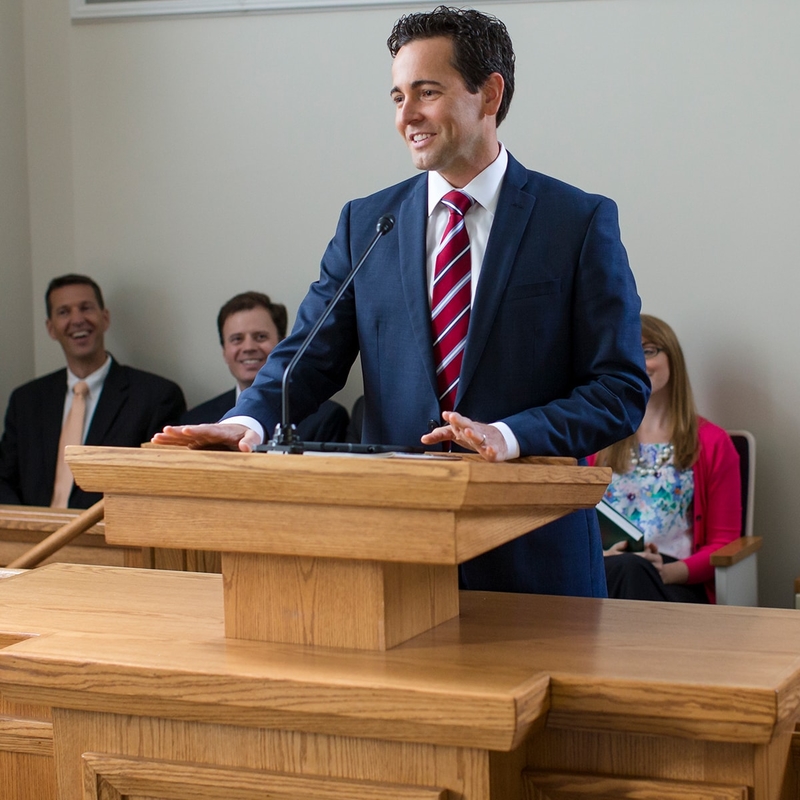
2. Why did the Come Follow Me manual invite you to watch the video “Welcome”? What does it have to do with D&C 46-48?

3. What should a presiding officer do if a drunken heckler invades a sacrament meeting, keeps interrupting the speaker, and generally makes himself obnoxious, in view of the instruction in 46:3 that “ye are commanded never to cast any one out from your public meetings”?
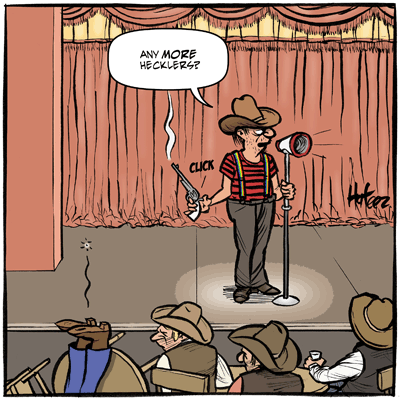
4. In view of 46:4, what should one do who suddenly remembers, just before the bread tray reaches him, that he had called his sister a “nincompoop” that morning and had not yet apologized? What difference might it make if his sins instead had been not to have made any ministering contacts the previous month? Or if it had been to have shoplifted a new jacket from Walmart?
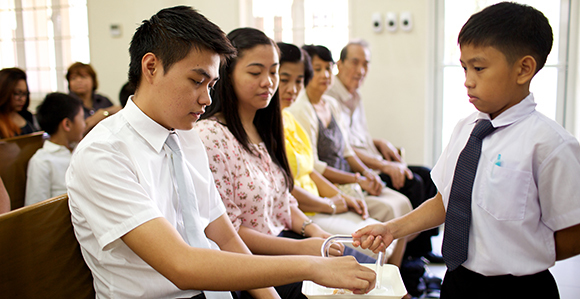
5. If spiritual gifts are for the benefit of those who love God and keep all his commandments (46:9), why do we even bother to talk about them? Who could qualify?

6. In addition to D&C 46, Moroni 10 and 1 Corinthians 12 give extensive lists of the gifts of the Spirit. What similarities and what differences do you find among the three lists?
6a. What clue does the comparable verse in Moroni 10 give us as to what the Lord may have really meant by the gift of “the discerning of spirits” mentioned in D&C 46:23?
7. What should a young woman do who reads 46:11 and can’t identify any spiritual gift that she enjoys?
a. Recognize that as the language of the verse states, gifts are given to “every man,” not every person.
b. Recognize that she probably needs to repent of something to become more worthy of such gifts.
c. Recognize that she needs to look more closely in order to identify which gift she has.
d. Recognize that not all spiritual gifts are listed in section 46, and her gift could be one of those which is not listed.
e. All of the above.

8. What does D&C 46 suggest is the reason the Lord doesn’t give each faithful Church member all of the spiritual gifts?
9. What should we think about someone who gets up in fast and testimony meeting and merely says “I believe this Church is true” rather than “I know this Church is true”?
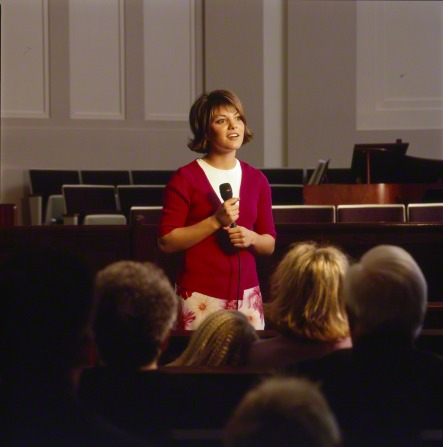
10. Can it be said that one who can tell the difference between President Trump’s four years in office and President Obama’s term knows the “differences of administration” as mentioned in 46:15? If not, what does this term mean?

11. Does one who can distinguish between an appendectomy and open heart surgery “know the diversities of operations”? What other gift mentioned in D&C 46 is essentially synonymous?
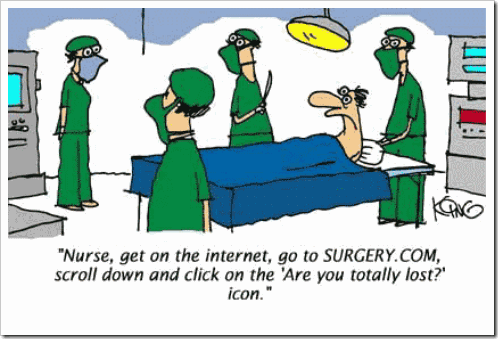
12. How does the “word of wisdom” in 46:17 differ from the “Word of Wisdom” in D&C 89?
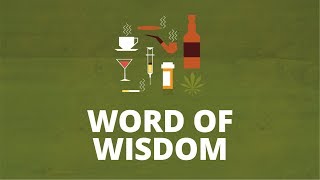
13. Do both the gift of “faith to be healed” and the gift of “faith to heal” have to be present in order for a healing to take place, or can the presence of one of the gifts make up for the lack of the other?
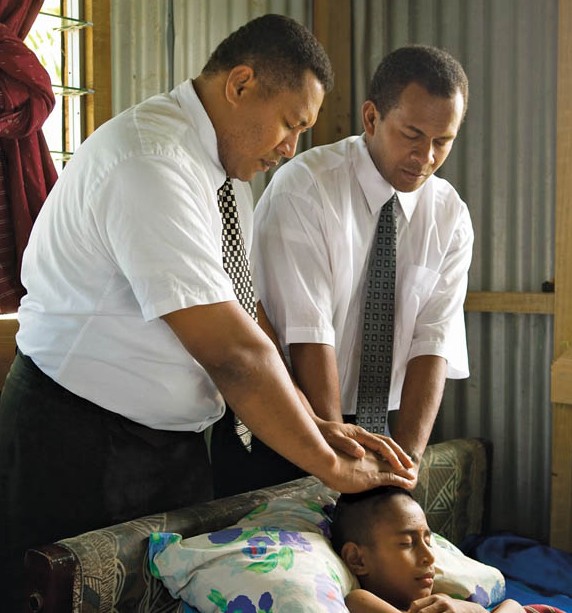
14. What significance do you see in the order in which the gifts are listed in D&C 46?
14a. How can we discern between true spiritual gifts and counterfeit manifestations? (See vv. 7–8, 23–26.)
15. What clue does D&C 46 provide as to how we can guarantee that our prayers are answered?

16. Other than section 46, which section in this week’s reading did you consider most applicable to you personally, and why?
17. Four years ago, the Come Follow Me manual suggested we click on history.ChurchofJesusChrist.org. Why do you suppose they did so? It’s still not a bad idea. If you did click on it, what were the most exciting things you found when you did?
18. How does keeping records today (journals, Church history, family history) strengthen our faith and future generations?
Possible Answers to Points to Ponder in Doctrine and Covenants 46-48
1. What is the practical application of the instruction in 46:2 that all meetings should be conducted as directed and guided by the Spirit? Should speakers not be assigned a month in advance but simply called out of the audience? Should hymns be selected on the spur of the moment? What if the bishop feels inspired to extend sacrament meeting to two hours, but the Primary president feels it should let out on time so that Primary can begin?
The Spirit can be just as operative during the advance planning stages as on the spur of the moment–probably more so! The Spirit can influence whom the bishop asks to speak, what topics he suggests they address, what hymns the music director selects, etc. Naturally, the Spirit may also prompt deviations from the planned program, but seldom will it condone haphazard disorganization or disruption of the normal program the Spirit prompted the First Presidency to institute.
2. Why did the Come Follow Me manual invite you to watch the video “Welcome”? What does it have to do with D&C 46-48?
Four times between D&C 46:3 and 46:6 the Lord emphasizes that we not “cast out” any who wish to attend our meetings. We can “cast people out” intentionally or simply make them feel unwelcome by our actions or lack of attention to them. The Lord obviously wants to make sure we don’t do either. The video is a great reminder that visitors, whether members or not, really are welcome in all our services and that we have an obligation to help them feel so.
3. What should a presiding officer do if a drunken heckler invades a sacrament meeting, keeps interrupting the speaker, and generally makes himself obnoxious, in view of the instruction in 46:3 that “ye are commanded never to cast any one out from your public meetings”?
Verses 5 and 6 seem to clarify that this instruction applies to those “who are earnestly seeking the kingdom,” not those who are bent on opposing it. And verse 2 assures us that the Spirit may dictate exceptions even to written rules. Obviously, the proper thing to do, if the heckler will not settle down or leave quietly, is to call the police.
4. In view of 46:4, what should one do who suddenly remembers, just before the bread tray reaches him, that he had called his sister a “nincompoop” that morning and had not yet apologized? What difference might it make if his sins instead had been not to have made any ministering contacts the previous month? Or if it had been to have shoplifted a new jacket from Walmart?
In the case of the stolen jacket, it would seem clear that the jacket should be returned or paid for before one would take the sacrament. In the case of the neglected ministering responsibility, one might quickly offer a silent prayer of apology and recommitment to the Lord and feel ready to take the sacrament when it arrived. The case of the name calling might be borderline. We could bring much less bread on Sundays if no one partook of the sacrament who could think of any wrongdoing the previous week that hadn’t completely been rectified, though it is obvious that major sins would need to be repented of prior to proper participation in the sacrament. Perhaps one useful guideline would be the extent to which one can wholeheartedly subscribe to the words of the sacrament prayers themselves.
5. If spiritual gifts are for the benefit of those who love God and keep all his commandments (46:9), why do we even bother to talk about them? Who could qualify?
The escape clause is in the very next phrase–spiritual gifts are also for those who seek so to do. By that standard, most of us should be able to qualify. It’s worth noting, however, that the word “all” still applies. If there are any commandments we are not even seeking to keep, we are unlikely to witness many spiritual manifestations.
6. In addition to D&C 46, Moroni 10 and 1 Corinthians 12 give extensive lists of the gifts of the Spirit. What similarities and what differences do you find among the three lists?
The lists are very similar, but in some cases the order of the gifts is changed, and sometimes one list adds significant details that the others do not. For a harmony of what the three chapters have to say on the subject, go to my “Harmony of Spiritual Gifts” at https://1drv.ms/b/s!ApUO8ho2E1yThKIaedGQd2zFU8WaeQ?e=MOBomu. Items which are essentially the same in each list are shown in the same font or highlight color. Those highlighted in yellow are unique contributions of that chapter.
6a. What clue does the comparable verse in Moroni 10 give us as to what the Lord may have really meant by the gift of “the discerning of spirits” mentioned in D&C 46:23?
All three lists of spiritual gifts mention in order the gift of prophecy, the gift of the discerning of spirits, and the gift of speaking in tongues. But Moroni 10:14 words it a bit differently, speaking of it as “the beholding of angels and ministering spirits.” So, it appears, that the principle meaning of “discerning of spirits” is simply to be able to “see” spirits–that is to discern their presence and be instructed or otherwise blessed by them.
7. What should a young woman do who reads 46:11 and can’t identify any spiritual gift that she enjoys?
Most likely it is “b” or “c,” or some combination of the two. Neither “a” nor “e” make any sense. While there could be some truth to “d,” it seems that anyone who has the Spirit at all would have at least one gift which is on the D&C 46 list. As Joseph Smith said, “No man can receive the Holy Ghost without receiving revelation.” Such revelation would almost certainly include strengthening one’s faith in Christ, enable him to “prophesy,” and/or contribute to his having the “word of knowledge” or “word of wisdom,” all of which are included in this section.
8. What does D&C 46 suggest is the reason the Lord doesn’t give each faithful Church member all of the spiritual gifts?
Perhaps so that each will need others to make the entire community function properly. (v. 11-12.) Since serving others is essential to our individual spiritual growth, the Lord has given us each a way in which we can truly serve others by giving us each talents and spiritual endowments that others may lack.
9. What should we think about someone who gets up in fast and testimony meeting and merely says “I believe this Church is true” rather than “I know this Church is true”?
We should think that person has received the Spirit of the Lord as per 46:14 and that he is on his way to eternal life if he doesn’t change course. While all should aspire to strengthen their testimonies to the point they can confidently say they know, our actions are affected almost as much by what we believe as by what we know.
10. Can it be said that one who can tell the difference between President Trump’s four years in office and President Obama’s term knows the “differences of administration” as mentioned in 46:15? If not, what does this term mean?
This is a somewhat ambiguous term about which various commentators have made differing guesses. The two main points of view are (1) that it means the ability to understand how the priesthood should be used and how Church government should work or (2) that it means something very similar to “knowing the diversities of operations”–i.e., to know whether a given spiritual manifestation is from a divine or demonic source. The Church’s article on “Spiritual Gifts” in Gospel Topics, however, takes the first position and states: “This gift is used in administering and leading the Church.”
11. Does one who can distinguish between an appendectomy and open heart surgery “know the diversities of operations”? What other gift mentioned in D&C 46 is essentially synonymous?
This term seems to mean essentially the same as the gift of “discerning of spirits” (v. 23)–i.e., to know whether one who is working miracles or producing spiritual phenomena is operating by the Lord’s or Satan’s power. The Church’s article on “Spiritual Gifts” in Gospel Topics states that this gift “helps individuals discern whether a teaching or influence comes from God or from some other source.”
12. How does the “word of wisdom” in 46:17 differ from the “Word of Wisdom” in D&C 89?
They have nothing to do with each other, other than that D&C 89 is an example of the Lord’s sharing with us the kind of wise teachings that with the spiritual gift mentioned in D&C 46 we can share with each other. D&C 46:17-18 seems to be talking about the gift of imparting wisdom to others—in other words, the gift to teach effectively. D&C 89 is a piece of wisdom imparted by the Lord to us concerning what is good and not good for our physical bodies.
13. Do both the gift of “faith to be healed” and the gift of “faith to heal” have to be present in order for a healing to take place, or can the presence of one of the gifts make up for the lack of the other?
While it may help if both are present, it appears that in some cases a sufficient amount of one can help compensate for an absence or partial absence of the other, provided that the Lord wishes the healing to take place.
14. What significance do you see in the order in which the gifts are listed in D&C 46?
Tongues are listed last, which according to both Paul and Joseph Smith was the least significant of the gifts. And it would be hard to argue that any gift is more significant than a testimony of Christ, which is listed first, as it will affect our behavior much more than simply the ability to work a miracle, for example. And, if one doesn’t have the first gift, to know for sure that Jesus is the Christ, it would be hard to argue that anything other than what is listed second could be the next most important—the gift to be able to believe on the testimony of others.
14a. How can we discern between true spiritual gifts and counterfeit manifestations? (See vv. 7–8, 23–26.)
True gifts lead to faith, repentance, humility, love, and unity (v. 8), while false ones promote pride and contention,
15. What clue does D&C 46 provide as to how we can guarantee that our prayers are answered?
If we ask “in the Spirit,” as verse 30 suggests, we will ask for those things the Lord would want us to ask for and would be pleased to grant us.
16. Other than section 46, which section in this week’s reading did you consider most applicable to you personally, and why?
Your choice:
Those who pick section 48 will point to the importance of sharing what we have with those less fortunate. But there are many other scriptural passages which teach the same thing. My own pick, therefore, was section 47, which highlights the importance of writing and keeping a regular history. This has application to us individually as well as to the Church. I’m personally grateful for the marvelous collection of inspirational material which has been collected and made available by the Church Historian’s Office. And I’m grateful for the personal inspiration I get as a reread my own imperfect account of the hand of the Lord in my own and my family’s lives.
17. Four years ago, the Come Follow Me manual suggested we click on history.ChurchofJesusChrist.org. Why do you suppose they did so? It’s still not a bad idea. If you did click on it, what were the most exciting things you found when you did?
In the spirit of D&C 47, which called John Whitmer as Church historian, they wanted you to be aware of the wonderful and fascinating Church History resources the Church has compiled and made available to the public online. Some highlights include:
- Saints, a new and extremely readable four volume history of the Church, the first two volumes of which are now finished and available online.
- Saints Podcast, weekly podcasts from Church historians with interesting insights on each of the chapters in Saints.
- Primary Accounts of Joseph Smith’s First Vision of Deity.
- The Joseph Smith Papers. “An effort to gather together all extant Joseph Smith documents and to publish complete and accurate transcripts of those documents with both textual and contextual annotation.”
- Journal History of the Church, complete digital images of the day-to-day history of the Church are available online from 1830 through 1924.
- Historic Sites. How to get to and what to expect at all major Church historical sites from New York to Utah.
- And much more! What was “most exciting” will depend on you and your interests, but there is something for everyone.
18. How does keeping records today (journals, Church history, family history) strengthen our faith and future generations?
Records preserve testimonies, lessons, and God’s dealings with His people, helping later generations avoid past mistakes and build on faithfulness. You may enjoy looking at my post “The Most Exciting Scripture Your Grandkids Ever Read May Be That Which You Write!” at https://latterdaysaintandhappy.com/most-exciting-scripture-that-which-you-write/
